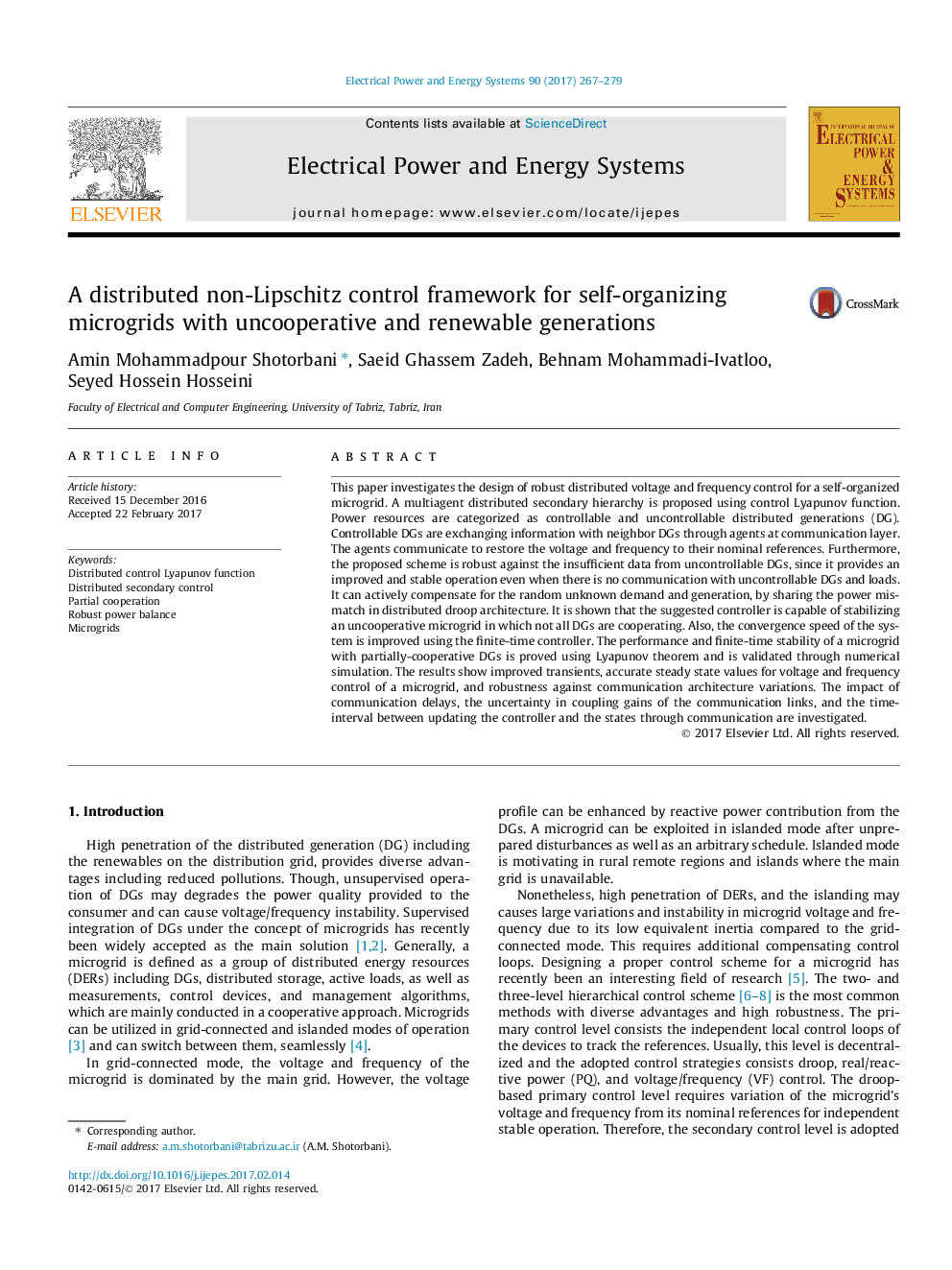ترجمه فارسی عنوان مقاله
یک چارچوب کنترل غیر چابکی توزیع شده برای میکروپردازهای خودسازمانده با نسلهای غیرقابل همکاری و تجدیدپذیر
عنوان انگلیسی
A distributed non-Lipschitz control framework for self-organizing microgrids with uncooperative and renewable generations
| کد مقاله | سال انتشار | تعداد صفحات مقاله انگلیسی |
|---|---|---|
| 142640 | 2017 | 13 صفحه PDF |
منبع

Publisher : Elsevier - Science Direct (الزویر - ساینس دایرکت)
Journal : International Journal of Electrical Power & Energy Systems, Volume 90, September 2017, Pages 267-279

